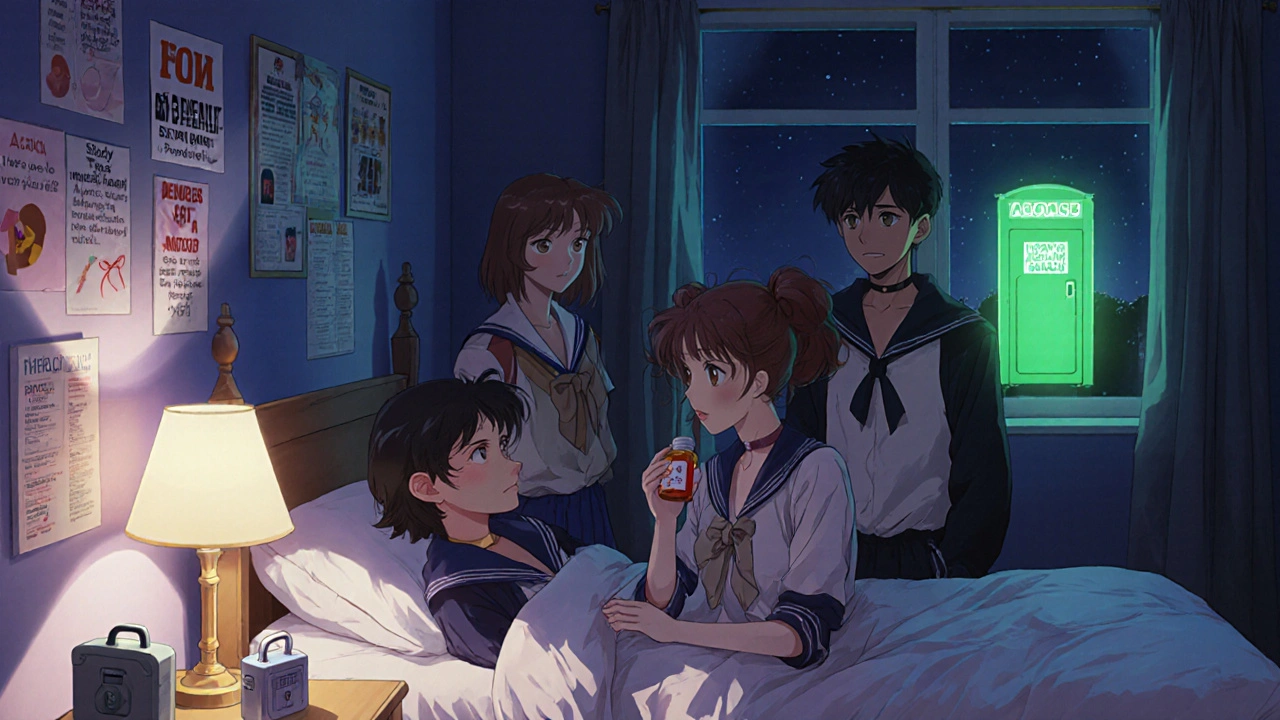Safe Drug Storage: How to Keep Medications Secure and Effective
When you think about safe drug storage, the practice of keeping medications in conditions that preserve their strength and prevent accidental access or misuse. Also known as medication safety, it’s not just about locking up pills—it’s about stopping kids, pets, or even yourself from taking the wrong thing at the wrong time. Every year, thousands of accidental poisonings happen because someone grabbed a bottle off the counter, left it in the bathroom, or didn’t realize how fast some drugs degrade in heat or humidity.
Drug interactions, harmful reactions between medications or with food and supplements can get worse if pills aren’t stored right. Take warfarin or statins—both need stable temperatures. If you keep them in a hot medicine cabinet above the sink, they can lose potency. That means your blood thinner might not work, or your cholesterol pill becomes useless. Same goes for insulin, which can spoil in minutes if left in a car on a summer day. And then there’s childproof storage, using containers and locations that prevent young children from accessing dangerous drugs. The CDC says over 60,000 kids under six end up in the ER each year after swallowing pills they found. Most of those pills were left within reach—on nightstands, in purses, or in unlocked cabinets.
It’s not just about safety—it’s about effectiveness. Heat, light, and moisture break down active ingredients. Antibiotics like amoxicillin turn into useless powder if stored in a humid bathroom. Eye drops? They expire faster once opened, and storing them in the fridge isn’t always better unless the label says so. Even something as simple as keeping your thyroid meds next to your vitamins can lead to confusion—and taking the wrong one can throw your whole system off. You don’t need fancy containers. Just a cool, dry place, out of sight, and locked if you have kids or visitors who might not know what’s what.
Expired meds? Don’t flush them. Don’t toss them in the trash where someone might dig through. Use a take-back program if you can. If not, mix them with coffee grounds or cat litter, seal them in a bag, and throw them away. That’s the safest way to keep them from falling into the wrong hands—or poisoning the water supply.
Below, you’ll find real stories and facts from people who’ve dealt with dangerous mix-ups, spoiled meds, and near-misses. Some of these posts show how a simple storage mistake led to hospital visits. Others explain how to organize your medicine cabinet so nothing gets lost or confused. You’ll learn what to do with old prescriptions, how to check if your pills are still good, and why some drugs need special handling. This isn’t theory—it’s what actually keeps people safe.
